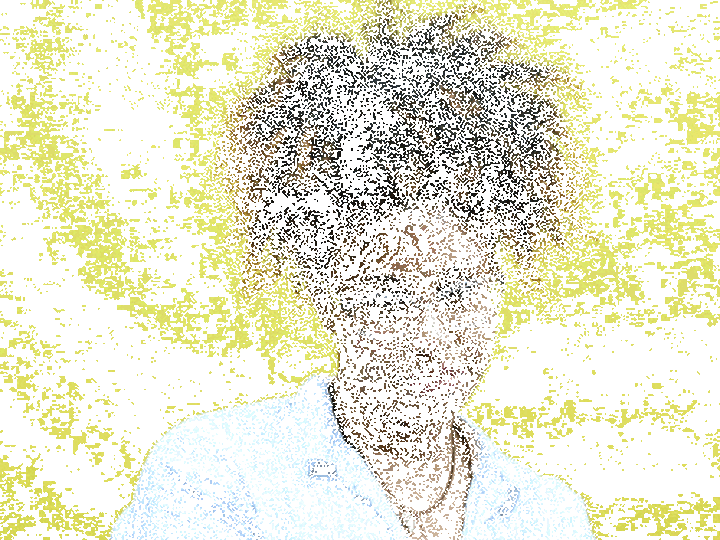All writers agree: clichés are to be avoided, mercilessly scrubbed out of our prose with boiling hot water and steel wool. Ideally, we burn ourselves a bit in the process as punishment for putting them there in the first place. (Should clichés be avoided like the plague? Probably. Is that itself a cliché? Yes.)
“Bad writing relies heavily on ready-made phrases,” writes Christopher Lasch in his style guide, Plain Style. “This method of writing requires less effort than original thought, but it provides readers with neither delight nor instruction.” And that’s just it—what we hate most about a cliché in prose is its sheer laziness, coupled with its shameless presentation as extraordinary or original thought.
Even so, if clichés are phrases or ideas so overused that they’ve lost their meaning, whose fault is that? Arguably not the cliché’s. As Jack Hanson notes in the Cleveland Review of Books, one could make the case that strong writing eventually devolves into cliché. A turn of phrase so powerful that it encourages imitation is admirable; perhaps it is the task of the writer to come up with a few clichés of her own. That said, it’s far too easy, as a writer, to think of oneself as an utterly original voice, to confuse novelty with genius, when the truth is closer to how T.S. Eliot put it: “No poet, no artist of any art, has his complete meaning alone.”
To be clear on where I stand: I will never defend clichés in prose—a quizzical brow, a deafening silence, endless possibilities, or even a bright blue sky. What I will defend is opening our hearts to the clichés of life.
There’s a big difference between clichéd writing and clichéd wisdom. While certain sayings that feel clichéd to us may be worn thin, they are not lazy strings of overused words. They are idioms, metaphors, proverbs, or aphorisms, and, taken together, they form a kind of common wisdom worthy of defense. “If it ain’t broke, don’t fix it.” Funny and true. “Easy come, easy go.” Alas. “No man ever steps in the same river twice.” Profound. There is more wisdom on Pinterest, set in that insufferable millennial wedding font, than many writers would care to admit. “Time will tell.” Indeed, it will.
So much for wisdom. We also shouldn’t avoid clichéd experiences. As our lives increasingly lose touch with everyday experiences in the real world, perhaps we should aim to have more of them (the everyday experiences, I mean). We live in a world riddled with disaffected irony. Social media rewards the unusual, the exaggerated, the hysterical, the false; it’s why we’re bombarded with bizarre things like elderflower cappuccinos. Too often, clichéd experiences are maligned for being “basic” when they’re actually just normal (and often quite good). A secure person can unironically enjoy a pumpkin spice latte. If you’re on page 37 of the SSENSE sale, you may never know the happiness of going to Target to get some fall candles. But I hope you do. (I hope we all do.) Red roses for Valentine’s Day? Well, what were you hoping for instead? A bunch of snapdragons? I would encourage all of us, especially the disaffected urbanites reading this, not to nibble around the edges of life but to devour it, to take in its most foundational and clichéd experiences without irony or reservation.
In our competitive, status-driven, and materialistic society, we all rely too much on commodities and experiences to provide us with meaning instead of what we bring to any given thing or experience. This is why 20-somethings on a thrifting budget will always look cooler than some advertising executive who wears the latest designer trends head-to-toe. (The 20-something wears the clothes; the clothes wear the advertising executive.) When I became a mother last year, it was liberating to simply realize that I can be a mom in my own way. I don’t have to take on every clichéd association I’ve ever had with motherhood, view it as a monolith, or weigh it down with leaden expectations. My experience of motherhood hasn’t been without hardship or sacrifice, of course (no one’s is), but it has felt a bit lighter. Had I deeply internalized a singular, clichéd idea of motherhood, I may have missed out entirely on the joyful cliché of becoming one.
When we feel alienated, it’s easy to double down, go further down the path of needless novelties and obscurities—like Des Esseintes in À Rebours—to rarefy our tastes and appetites beyond the point of parody, attempt to further distinguish and separate ourselves from others. But these small sips of status never quite quench our thirst, and a return to basics is sometimes required. So-called clichés, whether in wisdom or in experience, are easily understood; they tie us to one another, and they clearly endure. Clichés are not intellectual or aesthetic crimes, but grounded, commonplace truths, repeated endlessly. When we dismiss clichés outright, we risk dismissing the common life they articulate. Spoken with love, the most familiar words remind us that we are not so alone in this life; they place our private sorrows and joys in the shared custody of language. As we parents love to say to one another, and to anyone who will listen: all the clichés are true.
Catherine Shannon is a writer in New York City.
Source: https://post.substack.com/p/a-brief-defense-of-cliche






